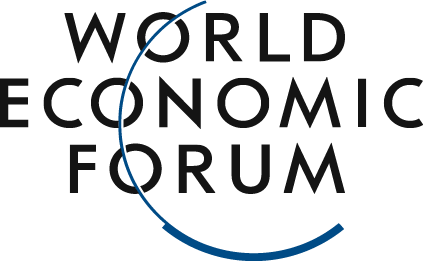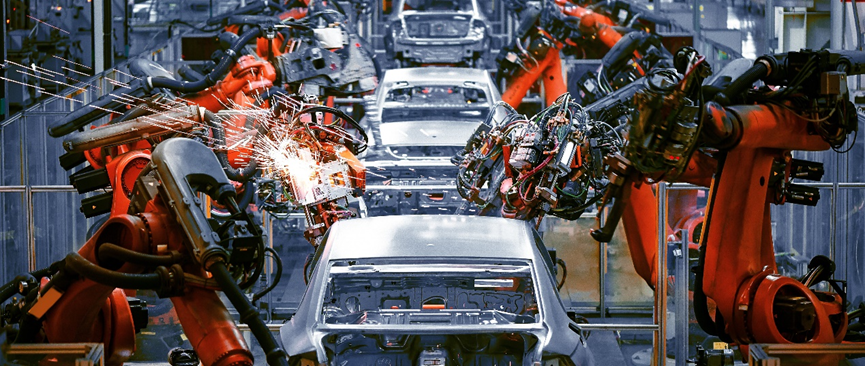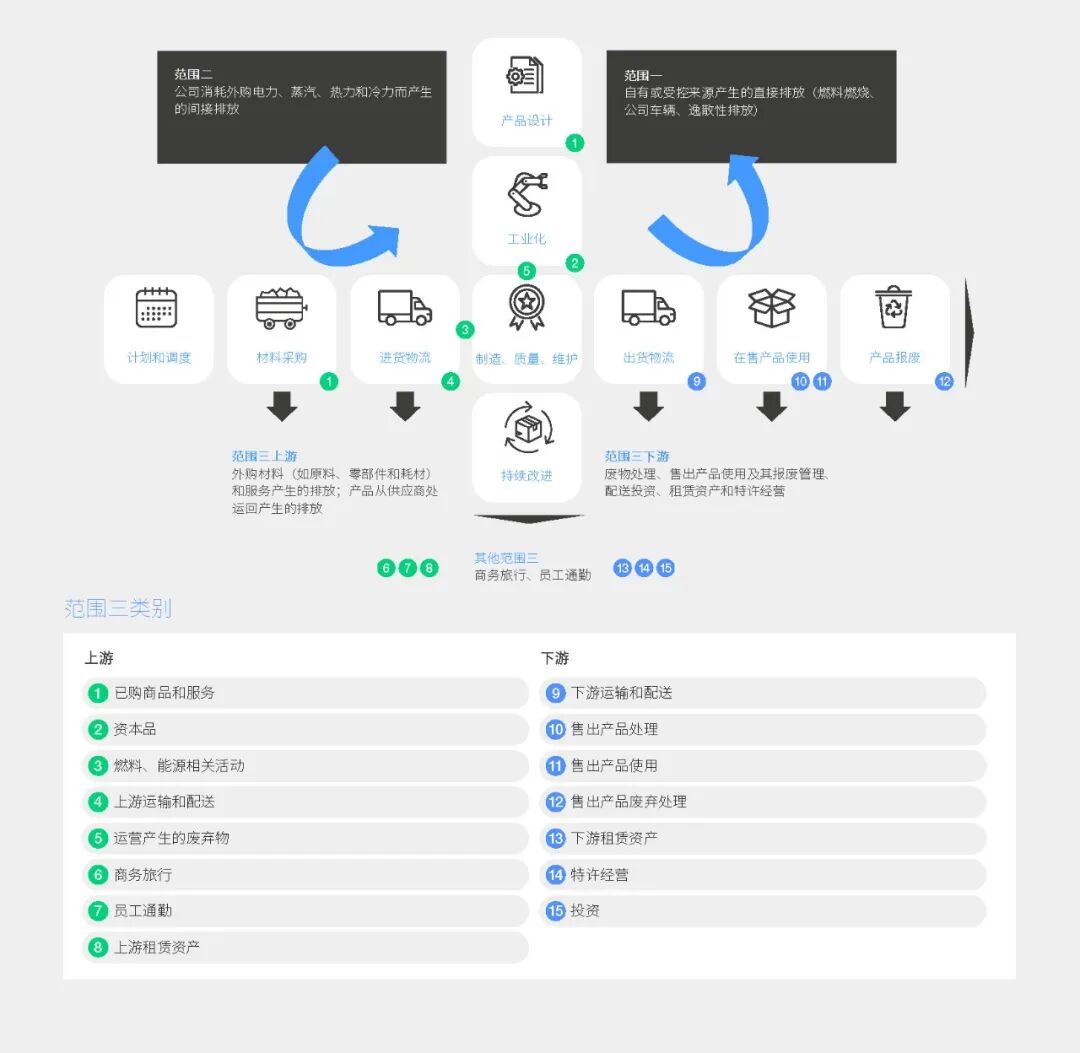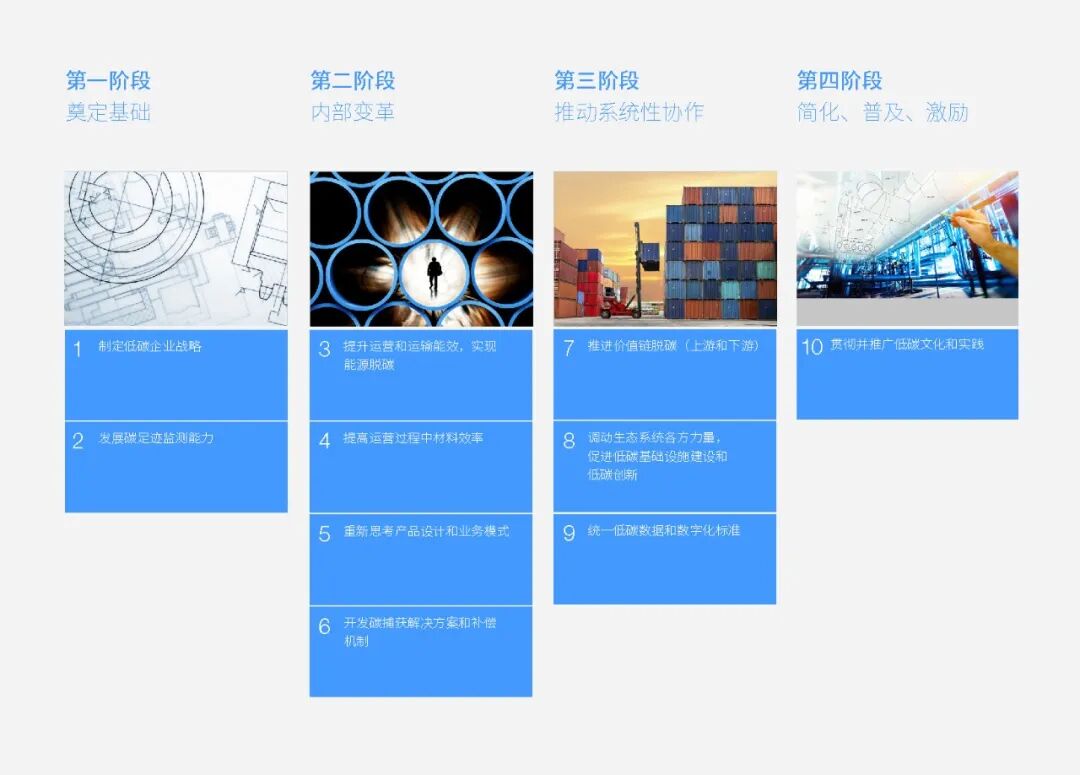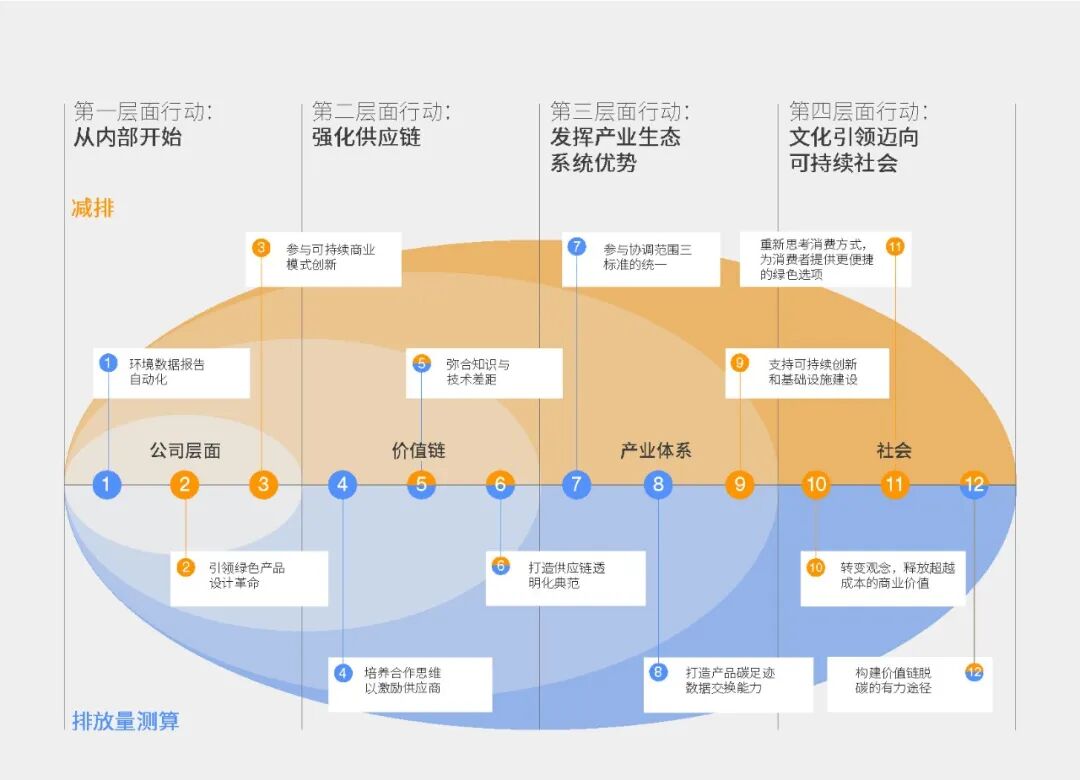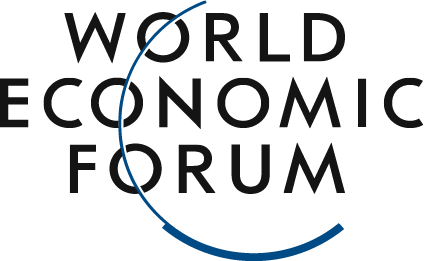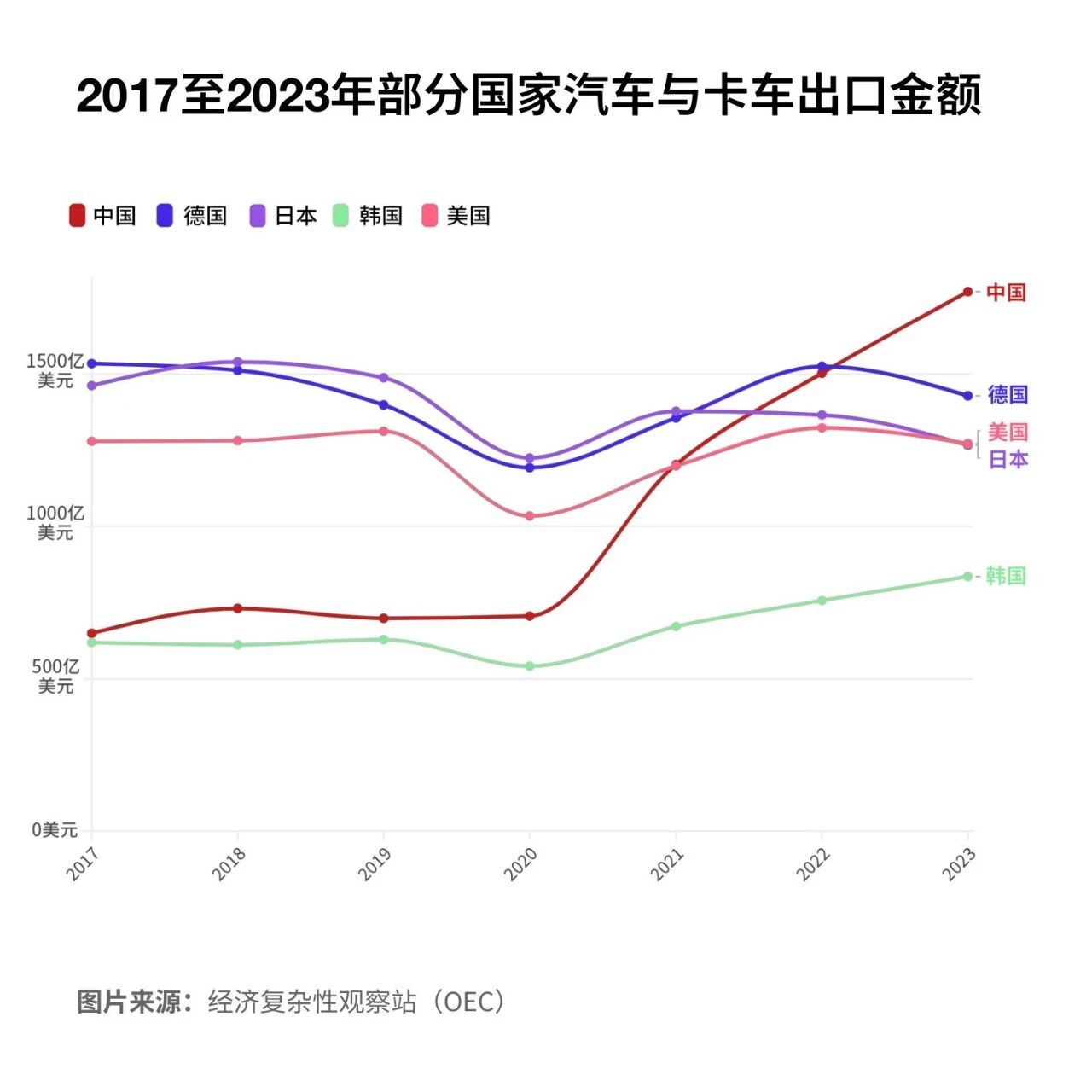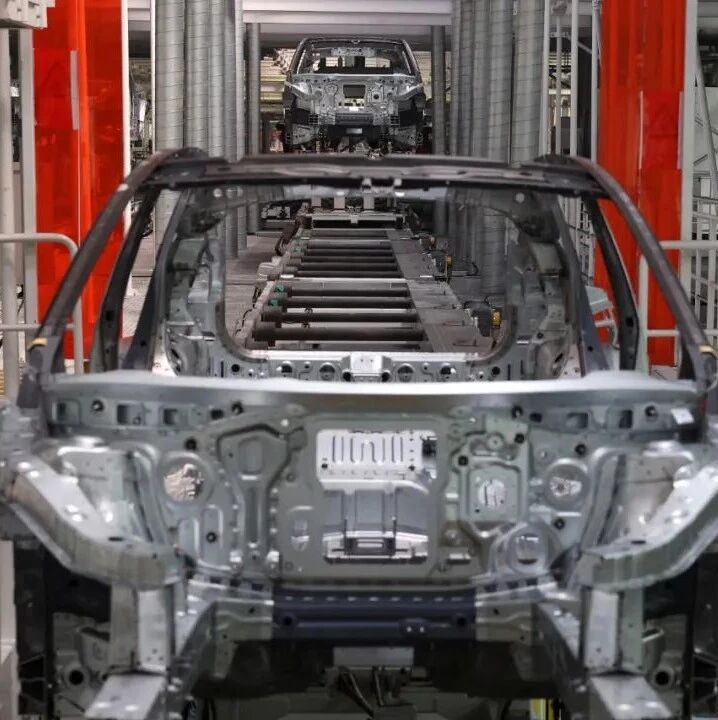In the global pursuit of carbon neutrality, the industrial sector plays a critical role and is now beginning to show promising results.
Image source:Getty Images/iStockphoto
Zhong Xiaoming
Head of the World Economic Forum’s Advanced Manufacturing and Supply Chain Initiative and Community
Nana
World Economic Forum Advanced ManufacturingWith the Fourth Industrial Revolution Center
China RegionResponsible person
Liu Yuzhe
World Economic Forum Advanced ManufacturingWith the Fourth Industrial Revolution Center
Platform Assistant
Greenhouse gas emissions from the industrial sector account for nearly 30% of global total emissions.
Achieving carbon neutrality requires the decarbonization of the industrial sector—without it, the goal remains unattainable.
The World Economic Forum's "Accelerating the Low-Carbon Transformation of Industry" initiative provides a robust action framework for industrial companies aiming to achieve carbon neutrality.
The industrial sector, including manufacturing and its interconnected value chains, accounts for nearly 30% of global greenhouse gas emissions. Therefore, the active participation and concerted efforts of the industrial sector are critical to achieving carbon neutrality goals.The industrial sector is a key player in the global economy, with an extensive network of stakeholders—making the transition to decarbonization no easy feat. Shifting toward decarbonization is not only an urgent environmental necessity but also essential for ensuring the industry remains competitive and achieves sustainable growth over the long term.For businesses, transformation means fundamentally rethinking and reshaping their production and operational models, while addressing emissions across various scopes—challenges that test their financial resources, technological capabilities, and organizational structures.When it comes to decarbonizing the industrial sector's value chain, reducing Scope 3 emissions presents a complex challenge. Scope 3 emissions refer to all indirect emissions across a company’s value chain—excluding Scope 2 emissions—and encompass both upstream and downstream emissions.Due to the complexity of global supply chains, the difficulty in establishing partnerships, and the scaling-up demands of the technological transition required for decarbonization, reducing Scope 3 emissions remains a significant challenge. Companies are grappling with issues such as knowledge gaps, insufficient incentives for change, and limited resources. Moreover, factors like inconsistent standards, inadequate infrastructure, and limited visibility across various stages of the supply chain further complicate the effective measurement and management of emissions.Scope 3 emission categories play a critical role in decarbonizing global industrial sectors by addressing Scope 3 emissions.
Image source:World Economic Forum
Putting the carbon neutrality goal into practiceOvercoming the challenges of Scope 3 decarbonization is critical for companies striving to achieve decarbonization at a realistic pace and scale.To help businesses at various stages of transformation—from laying solid foundations to driving change from within—by exploring pathways to achieve their goals across the value chain and industrial ecosystems, the World Economic Forum’s Center for Advanced Manufacturing and Supply Chains has partnered with Cambridge Industrial Innovation Policy (from the University of Cambridge’s Institute for Manufacturing), Capgemini, Rockwell Automation, and Siemens to launch the "Accelerating the Low-Carbon Transformation in Industry" initiative.This initiative has developed a comprehensive 10-step framework to guide businesses toward decarbonization. Serving as a roadmap, the framework spans from initial emissions assessments to engaging stakeholders and fostering continuous improvement—integrating sustainable practices into every aspect of corporate operations. By collaborating with an expanding community of industry executives, the initiative aims to demystify decarbonization and accelerate progress by disseminating actionable insights and sharing best practices across the sector.Additionally, the initiative delves into strategies for addressing Scope 3 emissions and outlines a comprehensive framework outlining opportunities to achieve decarbonization across manufacturing and value chains. The "No Excuses" framework is critical for industries aiming to reduce their environmental footprint, focusing on four key action areas: initiating internal reforms, empowering the supply chain, fully leveraging the industrial ecosystem, and fostering a cultural shift toward sustainability.CommentA "No-Excuse" Framework for Achieving Industrial Decarbonization
Image source:World Economic Forum
The "no-excuses" opportunity to tackle Scope 3 emissions in manufacturing and the value chain
Image source:World Economic Forum
Case Study of Chinese ManufacturersChina's manufacturing sector is a vital component of the national economy, contributing approximately 28% of its added value. Given China's massive economic scale, its manufacturing industry exerts significant influence on global markets. As the world strives toward a carbon-neutral future, leading Chinese manufacturers are pioneering sustainable practices in their operations and supply chains, offering invaluable lessons and insights along the way. Their transformation journeys underscore the critical role of innovation and collaboration in driving progress.Foxconn, an electronics manufacturer, is tackling Scope 3 emissions by enhancing supply chain efficiency and promoting material recycling. Recognizing that a significant portion of its emissions stems from the consumption of aluminum and stainless steel alloys, Foxconn has implemented a reverse logistics process to recover aluminum scrap, which is then remelted and reused. Leveraging a digital platform, the company ensures full traceability, monitors recycling rates, and tracks the carbon footprint of its products—strengthening both supply chain transparency and accountability. This approach not only reduces the need for primary aluminum but also cuts material costs and minimizes the company’s carbon footprint, benefiting Foxconn and its suppliers alike. By harnessing innovative technologies, seamless digital integration, and robust partnerships, Foxconn has set a stellar example for manufacturers striving to drive economic growth while simultaneously achieving decarbonization.CATL, a leader in the energy technology sector, has launched the "CREDIT" initiative to foster sustainable development across its supply chain. Under this program, CATL evaluates its suppliers against 135 sustainability metrics aligned with EU standards, directly influencing procurement decisions and motivating suppliers to embrace sustainable practices. Since 2022, CATL has assessed 35 key suppliers and conducted 51 sustainability training sessions. In 2023, CATL expanded the scope of its evaluation process by introducing follow-up assessments and ongoing monitoring, further supporting suppliers in their journey toward sustainable transformation. By setting rigorous benchmarks and providing continuous assistance, CATL has not only strengthened its own sustainability capabilities but also catalyzed industry-wide change. This approach underscores that a clear framework, stringent evaluations, and collaborative efforts are essential for achieving carbon neutrality goals.Moving together toward the carbon neutrality goalAchieving carbon neutrality requires global stakeholders to transcend regional boundaries and work together, calling for the adoption of practical, actionable strategies and collaborative approaches. Leading manufacturers like Foxconn and CATL, whose businesses are deeply rooted in China, are at the forefront of the decarbonization journey. Their success demonstrates that, with the right strategies and a spirit of cross-regional cooperation, the goal of carbon neutrality is indeed attainable.The World Economic Forum's "Accelerating the Low-Carbon Transformation of Industry" initiative provides a robust framework and actionable roadmap aimed at fostering a unified, cross-regional approach—ensuring that stakeholders at all levels can contribute to and benefit from the global shift toward sustainable development.We thank the team behind the "Accelerating the Low-Carbon Transformation of Industry" initiative, as well as its partner organizations—Cambridge Industrial Innovation Policy, Capgemini, Rockwell Automation, and Siemens—for their invaluable contributions to the initiative.The above content solely represents the author's personal views.This article is translated from the World Economic Forum's Agenda blog; the Chinese version is for reference purposes only. Feel free to share it on your social media circles—but please leave a comment below this post if you’d like to request permission for further reproduction.
Translated by: Sun Qian | Edited by: Wang Can
The World Economic Forum is an independent and neutral platform dedicated to bringing together diverse perspectives to discuss critical global, regional, and industry-specific issues.
Follow us on Weibo, WeChat Video Accounts, Douyin, and Xiaohongshu!
"World Economic Forum"
